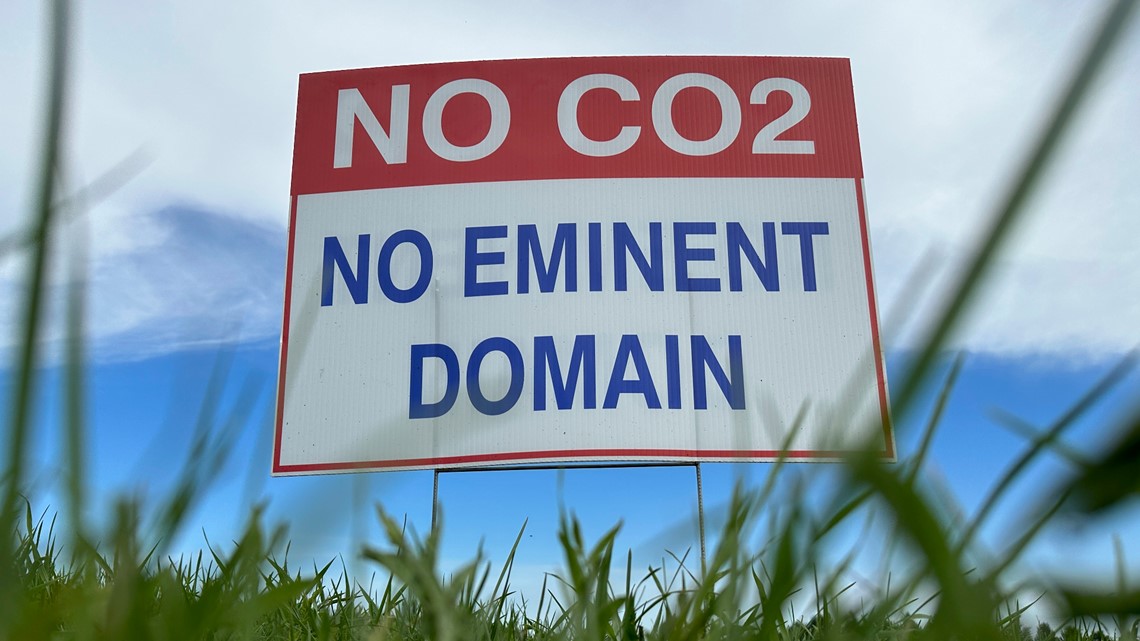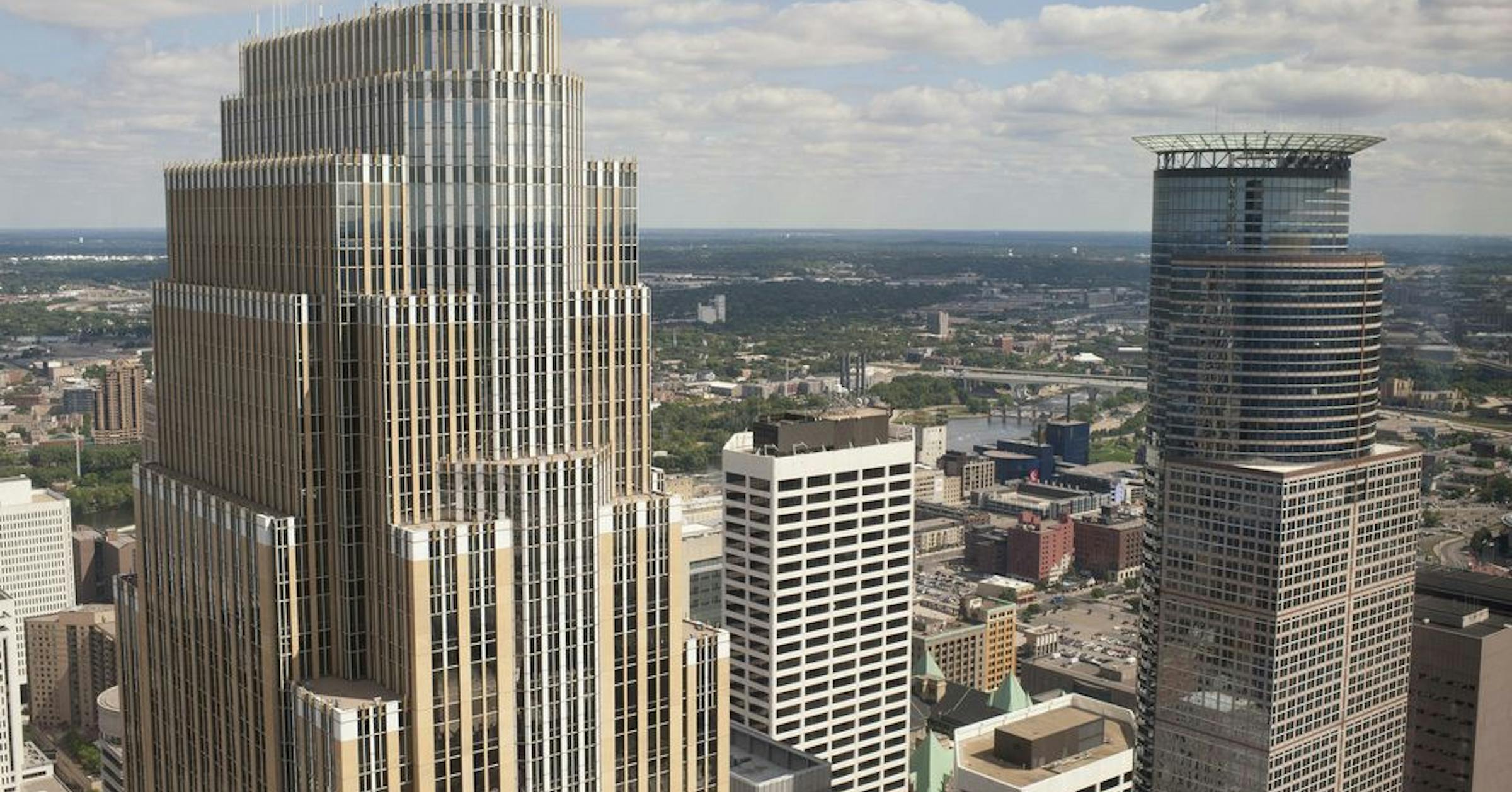Kare11
The Lion King returns to Minneapolis’ Orpheum Theatre


MINNEAPOLIS — Editor’s Note: This photo is from The Lion King’s previous tour stop in Minneapolis in 2016.
A popular Broadway show is roaring back in Minneapolis… and it will be here for a whole month.
The Lion King has visited the Orpheum five times in previous years, but with its continuous success on national stages, the tour has made another stop in the Twin Cities. The show runs March 27 – April 28.
The show is known for its intricate costumes, which include detailed puppets that mimic animals like giraffes, zebras and, of course, lions.
And if you’re interested in a sensory-friendly performance, the Hennepin Theatre Trust will host that on April 20 at 2 p.m.
Download the free KARE 11+ app for Roku, Fire TV, Apple TV and other smart TV platforms to watch more from KARE 11 anytime! The KARE 11+ app includes live streams of all of KARE 11’s newscasts. You’ll also find on-demand replays of newscasts; the latest from KARE 11 Investigates, Breaking the News and the Land of 10,000 Stories; exclusive programs like Verify and HeartThreads; and Minnesota sports talk from our partners at Locked On Minnesota.
Watch the latest local news from the Twin Cities and across Minnesota in our YouTube playlist:
Kare11
MN regulators approve controversial carbon pipeline


Despite the commission’s approval, Carbon Solutions can’t start construction in Minnesota until work has begun in North Dakota.
MINNESOTA, USA — A board of Minnesota regulators granted approval to a controversial carbon capture pipeline that has long drawn the ire of rural environmentalist groups.
The Minnesota Public Utilities Commission (PUC) approved the proposal from Ames, IA-based Summit Carbon Solutions for a carbon capture and storage pipeline project on Thursday.
“The Commission appreciates the robust stakeholder and landowner participation in this project,” said PUC Commissioner John Tuma, in a statement.
Despite the commission’s approval, Carbon Solutions can’t start construction in Minnesota until work has begun in North Dakota, said Tuma.
The PUC approved a “Otter Tail to Wilkin Carbon Dioxide Pipeline Project, which would be a 28-mile, 4.5 inch diameter carbon steel pipeline.
It’s part of a massive pipeline project that would link five states and cost more than $4 billion.
In total, the project calls for 1,958 miles of pipeline, in Iowa, Minnesota, Nebraska, North Dakota and South Dakota, that will capture carbon dioxide from biorefineries, before compressing the CO2 into the pipeline for its destination in North Dakota.
Landowners in several states have complained about the proposed pipeline, with one such case going to the state’s supreme court in Iowa. In that case, the Iowa Supreme Court ruled against a landowner who wanted to block representatives from Summit Carbon from entering his property.
The approval doesn’t come as a surprise to Sarah Mooradian, government relations and policy director at CURE, a rurally based non-profit focusing on environment issues and rural spaces and how those things intersect.
“We’re disappointed,” she said. “We really need to kind of pump the brakes on this. This would be Minnesota’s first CO2 pipeline. We don’t have experience with this. The company itself has never built a CO2 pipeline.”
Mooradian is concerned people living in rural communities weren’t heard on this project.
“Will they kind of be bearing the burden of this project or will they get any benefits from this project? We’re also concerned about safety,” she said. “We need to be taking a closer look, slower look at this. Is it doing the things the company says it will be doing, do we have the proper safety guardrails in place. Who’s going to benefit from this.”
She’s also worried about environmental and human health impacts.
“We know that back in 2020 that a larger CO2 pipeline ruptured back in Sartoria, Mississippi, sent about 45 people to the hospital for treatment as well as 200 people had to be evacuated from Sartoria,” she said.
Mooradian said she is worried this pipeline could become an enhanced oil recovery pipeline. According to the Department of Energy, this technique would inject carbon dioxide into the reservoir rock of an existing oil field to recover more oil and natural gas than would otherwise have been produced.
“Carbon capture and carbon pipelines have been around, that technology has been around since about 1970, but they’ve been used almost exclusively for enhanced oil recovery not in what we’re starting to see come about today which is dedicated geological storage,” she said.
Kevin Pranis, marketing director for Liuna! Minnesota and North Dakota said carbon capture pipelines are a key tool when it comes to climate change. He’s also on the Minnesota Governor’s Advisory Council on Climate Change.
“The science says globally carbon capture is essential to every viable pathway to getting to stabilizing our climate,” he said. “These are all facilities that emit carbon every single day. This pipeline means that most of those emissions are eliminated.”
He said this pipeline will bring thousands of jobs to the region and would be one of the largest climate infrastructure projects in the upper Midwest.
“Our members are really committed to being a part of the solution to climate change and what our members wanted a chance to put those skills to work,” he said. “These aren’t just jobs. These are career opportunities to bring people into construction trades to [earn] a middle class living and to have healthcare for your entire family and pension.”
Pranis said Liuna! is committed to climate progress as any organization out there and said this pipeline has been studied closely. He said they’re optimistic Summit will get the necessary permits to move the project forward. He said once it’s built other industries could tap in like cement because they are a major producer of carbon dioxide.
Amelia Vohs, climate director at Minnesota Center for Environmental Advocacy said she was pleased to see PUC put protections in place for Minnesota.
“If there’s funding issues, if they’re not able to complete it, if they can’t get permits needed in other jurisdictions that Minnesota isn’t left with a half-build, half-baked project,” Vohs said.
However, she wasn’t happy it got approved.
“We weren’t excited about the project. We don’t actually think it’s a great climate solution and it could actually result in increased greenhouse gas emissions,” Vohs said. “It’s a tricky balance. It’s always good to capture emissions but you could inadvertently be creating more emissions earlier in the life cycle chain of the ethanol.”
She said there are financial incentives for companies to build these types of pipelines.
“There have been a couple incentives. There’s some federal legislation that grants tax credits for capturing these carbon dioxide from these ethanol facilities, so that’s a financial incentive. There are also low carbon fuel markets like California,” she said. “I would say, the impetus for the project is that there is money to be made by capturing the carbon dioxide.”
Vohs said what the exact climate consequences will be are still unclear.
Kare11
St. Paul community leaders, SPPD meet to discuss curbing violence


“We want to lead people to help,” Richard Pittman, President of NAACP Minnesota and the Dakotas, said.
ST PAUL, Minn. — In a room named for fellowship, community leaders in St. Paul met to discuss tough love – and changing the direction of violence in the city.
“You don’t keep doing the same things over and over and keep expecting a different outcome,” a speaker said.
Inside Arlington Hills Luther Church in St. Paul, dozens met to share their frustration over recent violence, including nine homicides in a two month stretch earlier in the fall.
Many met in November to decry that violence, announcing they’d be looking to hold a meeting that became tonight’s meeting, to discuss how to stop the violence.
Since that meeting, three more people were killed.
“It’s gonna have to be done with community, it’s gonna have to be done with law enforcement, it’s gonna have to be done with our city officials,” Richard Pittman, president of the NAACP of Minnesota and the Dakotas, said.
Also joining Thursday’s conversation – St. Paul Police Chief Axel Henry.
“We’re back into more normal levels, but to be clear, any homicide is too many,” Henry said.
Adding to the conversation – new changes in the St. Paul city budget, passed by the city council earlier this week. That budget includes cuts to the departments overtime budget, something the council says the police department has overspent on.
The department is down more than 60 staff positions.
“Obviously those cuts are challenging, I’m honestly a little disappointed and a little frustrated, but what i can tell you is this – this department is going to respond to 911 calls. If this community calls the police, I wouldn’t want them to be worried at all,” Henry said.
“Does that give you pause or give you worry about being able to do this?” KARE11’s Ian Russell asked.
“You know, obviously it’s concerning, and it’s always challenging,” Henry responded.
Discussion at the meeting involved being present in young people’s lives, ways to invest in their future, and even childcare options.
“We want to meet monthly, in order to help whatever issues, we want to lead people to resources,” Pittman said. “We want to lead people to help.”
Kare11
More people seek shelters, warming centers as freezing temps hit Minnesota


Many shelters across the Twin Cities are accommodating more people as colder weather settles in.
MINNESOTA, USA — At Union Gospel Mission Twin Cities emergency men’s shelter in St. Paul, staff members usually say hope begins with a meal. During cold snaps, the organization’s Director of Community Relations Sarah Peterka said hope begins “with a warm space to be in, and so we want to be that warm space for folks in need.”
According to Peterka, the 24-hour shelter and recovery campus is nearly always at capacity. At times, it is overflowing. “A couple weeks ago, we had 30 to 35 gentlemen just staying in our lobby overnight.”
Normally, the shelter’s chapel has space for 52 men to sleep overnight. With extremely cold weather moving in, Peterka said the shelter had to add more beds. “We have increased our capacity with 40 additional bunk beds, and folks will stay here overnight,” she explained.
Across Ramsey County, warming centers provide a place for people to escape the cold from Dec. 11 through March 31.
According to Ramsey County Housing Stability Executive Director Kim Cleminson, the centers first opened in 2022, after county employees heard concerns from community members.
“They are worried about frostbite, they are worried about losing fingers … and I think that is what kind of prompted us to actually take action on the warming spaces; because we heard that more than once, and that is just a terrible, terrible tragedy,” Cleminson said.
In Minneapolis, the Salvation Army normally provides roughly 300 to 400 beds at its Harbor Light Center. When freezing temperatures roll in, Capt. Josh Polcano said the shelter accommodates 40 additional beds.
“These weathers in Minnesota can get brutally cold, and so on days where we have these Arctic blast type of winds, we want to make sure that people know that they have options,” Polcano said. “It doesn’t get more basic than a shelter or a roof over your head, especially when the weather is the way it is right now … I don’t take for granted the roof that I have over my head or my children, and so I want the same for every human being that’s out there. They deserve it.”
On Thursday evening, people gathered at Plymouth Congregational Church for a silent march and vigil honoring the memories of people who’ve died while experiencing homelessness, people who previously experienced homelessness or people who were advocates on their behalf.
Those attending the 40th annual Homeless Memorial March carried signs showcasing the names and ages of people who’ve passed away across Minnesota.
There are resources available across the Twin Cities for people seeking shelter and warmth:
Hennepin County – Daytime Options
Catholic Charities Opportunity Center: 740 East 17th St., Minneapolis – 612-204-8300
Grab some food, a warm shower, do some laundry and connect with internet.
Hope Avenue Twin Cities: 1229 Logan Ave., Minneapolis – 612-709-0326
Guests can grab a meal, utilize the clothing closet, get a haircut or take a warm shower. There is also support from Alcoholics Anonymous on site.
Hennepin County Library locations: Listed here – 612-543-5669
Drop in and warm up during daily operating hours.
Minneapolis Central Library: 300 Nicollet Mall, Minneapolis – 612-543-8000
Heated space and limited computer access during normal operating hours.
Hennepin County Government Center: 300 South 6th St., Minneapolis – 612-348-3000
MoveFwd Drop-in (ages 15-24): 1001 Highway 7, Room 237, Hopkins – 952-988-8336
Warm spaces, housing assistance, food and hygiene products, employment search, help in getting a social security card, state ID, birth certificate, and more.
Oasis for Youth Drop-In (ages 16-24): 2200 West Old Shakopee Rd, Bloomington – 952-512-2061
Warm space, free clothes closet and hygiene/personal care products, food resources, laundry and showers, computer lab and internet access, job-search assistance, and educational support, transportation assistance, referrals to shelter and housing programs including the Suburban Host Home Program, rental assistance.
Peace House Community: 1816 Portland Ave., Minneapolis – 612-870-7263
Steps of Strategy: 1803 Bryant Ave. N Minneapolis – 612 431 4354
Warm space, lunch and dinner, peer support, case management, housing stabilization services, laundry, showers and clothing closet.
Youthlink (ages 16-24): 41 North 12th Street, Minneapolis – 612-252-1200
Hennepin County – Night Time options
American Indian Community Development Center – KOLA: 1600 East 19th St., Minneapolis
Fifty spots are available on a first-come, first-serve basis, with meals, showers and hygiene supplies.
Rescue Now Services: 97 13th Ave. NE, Minneapolis – For bed reservations, call Hennepin Shelter Hotline at 612-204-8200
Dinner and breakfast provided, as well as showers, hygiene supplies, bus tokens.
Ramsey County
Holy Christian Church: 125 Stevens St. W., St. Paul
Warming spot, food, clothing and outdoor gear – Women only
Saint Paul-Reformation Lutheran: 100 N. Oxford St., St. Paul
Warming spot, food, clothing and outdoor gear – Families and youth age 18-24
Phalen Activity Center: 1530 Phalen Dr., St. Paul
Warming spot, food, clothing and outdoor gear – Single adult males only
Newell Park Building: 900 Fairview Ave. N., St. Paul
Warming spot, food, clothing and outdoor gear – Single adult males only
On Sunday, Dec. 15, a Winter Warming Space for families and youth up to age 24 will open:
St. Paul-Reformation Lutheran Church: 100 Oxford St. N.
Ramsey County provides free rides to warming centers during frigid weather conditions. Pick-up spots include Union Gospel Mission Twin Cities, St. Paul Opportunity Center, Dorothy Day Center and the Ramsey County Law Enforcement Center.
Salvation Army Locations
Salvation Army locations will serve as daytime warming spaces during regular business hours when wind chills are expected to fall near or below zero through at least Thursday.
Here are those locations.
-
Brooklyn Park Salvation Army, 10011 Noble Parkway, (763) 425-0517
-
Maplewood Salvation Army, 2080 Woodlynn Ave., (651) 779-9177
-
North Minneapolis Salvation Army, 2024 Lyndale Ave. N., (612) 522-4871
-
Northeast Minneapolis Salvation Army, 2727 Central Ave. NE, (612) 789-2858
-
South Minneapolis Salvation Army, 1604 E. Lake St., (612) 721-1513
-
St. Paul Eastside Salvation Army, 1019 Payne Ave., (651) 776-8169
-
St. Paul West 7th Salvation Army, 401 W. 7th St., (651) 224-4316
The Salvation Army Harbor Lights emergency shelter will make an additional 40 beds available Wednesday through Friday (Dec. 11-13) as part of its “arctic overflow” program.
As winter progresses, extra beds will be made available every night beginning on Jan. 1, through Feb. 28. Those seeking emergency overnight shelter should contact Adult Shelter Connect at 612-248-2350 for availability.




